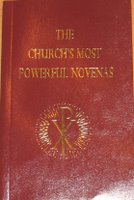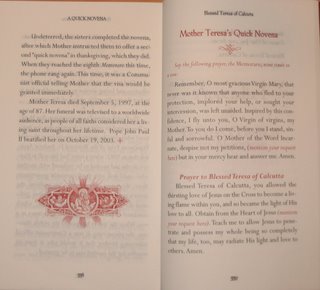
From Vatican Radio:
This Divine Liturgy celebrated on the Feast of Saint Andrew the Apostle, Patron Saint of the Church of Constantinople, brings us back to the early Church, to the age of the Apostles. The Gospels of Mark and Matthew relate how Jesus called the two brothers, Simon, whom Jesus calls Cephas or Peter, and Andrew: “Follow me, and I will make you fishers of men” (Mt 4:19, Mk 1:17). The Fourth Gospel also presents Andrew as the first to be called, “ho protoklitos”, as he is known in the Byzantine tradition. It is Andrew who then brings his brother Simon to Jesus (cf. Jn 1:40f.).
Today, in this Patriarchal Church of Saint George, we are able to experience once again the communion and call of the two brothers, Simon Peter and Andrew, in the meeting of the Successor of Peter and his Brother in the episcopal ministry, the head of this Church traditionally founded by the Apostle Andrew. Our fraternal encounter highlights the special relationship uniting the Churches of Rome and Constantinople as Sister Churches.
With heartfelt joy we thank God for granting new vitality to the relationship that has developed since the memorable meeting in Jerusalem in December 1964 between our predecessors, Pope Paul VI and Patriarch Athenagoras. Their exchange of letters, published in the volume entitled Tomos Agapis, testifies to the depth of the bonds that grew between them, bonds mirrored in the relationship between the Sister Churches of Rome and Constantinople.
On 7 December 1965, the eve of the final session of the Second Vatican Council, our venerable predecessors took a unique and unforgettable step in the Patriarchal Church of Saint George and the Basilica of Saint Peter in the Vatican respectively: they removed from the memory of the Church the tragic excommunications of 1054. In this way they confirmed a decisive shift in our relationship. Since then, many other important steps have been taken along the path of mutual rapprochement. I recall in particular the visit of my predecessor, Pope John Paul II, to Constantinople in 1979, and the visits to Rome of the Ecumenical Patriarch Bartholomew I.
In that same spirit, my presence here today is meant to renew our commitment to advancing along the road towards the re-establishment – by God’s grace – of full communion between the Church of Rome and the Church of Constantinople. I can assure you that the Catholic Church is willing to do everything possible to overcome obstacles and to seek, together with our Orthodox brothers and sisters, ever more effective means of pastoral cooperation to this end.
The two brothers, Simon, called Peter, and Andrew, were fishermen whom Jesus called to become fishers of men. The Risen Lord, before his Ascension, sent them out together with the other Apostles with the mission of making all nations his disciples, baptizing them and proclaiming his teachings (cf. Mt 28:19ff.; Lk 24:47; Acts 1:8).
This charge left us by the holy brothers Peter and Andrew is far from finished. On the contrary, today it is even more urgent and necessary. For it looks not only to those cultures which have been touched only marginally by the Gospel message, but also to long-established European cultures deeply grounded in the Christian tradition. The process of secularization has weakened the hold of that tradition; indeed, it is being called into question, and even rejected. In the face of this reality, we are called, together with all other Christian communities, to renew Europe’s awareness of its Christian roots, traditions and values, giving them new vitality.
Our efforts to build closer ties between the Catholic Church and the Orthodox Churches are a part of this missionary task. The divisions which exist among Christians are a scandal to the world and an obstacle to the proclamation of the Gospel. On the eve of his passion and death, the Lord, surrounded by his disciples, prayed fervently that all may be one, so that the world may believe (cf. Jn 17:21). It is only through brotherly communion between Christians and through their mutual love that the message of God’s love for each and every man and woman will become credible. Anyone who casts a realistic glance on the Christian world today will see the urgency of this witness.
Simon Peter and Andrew were called together to become fishers of men. This same task, however, took on a different form for each of the brothers. Simon, notwithstanding his human weakness, was called “Peter”, the “rock” on which the Church was to be built; to him in a particular way were entrusted the keys of the Kingdom of Heaven (cf. Mt 16:18). His journey would take him from Jerusalem to Antioch, and from Antioch to Rome, so that in that City he might exercise a universal responsibility. The issue of the universal service of Peter and his Successors has unfortunately given rise to our differences of opinion, which we hope to overcome, thanks also to the theological dialogue which has been recently resumed.
My venerable predecessor, the Servant of God Pope John Paul II, spoke of the mercy that characterizes Peter’s service of unity, a mercy which Peter himself was the first to experience (Encyclical Ut Unum Sint, 91). It is on this basis that Pope John Paul extended an invitation to enter into a fraternal dialogue aimed at identifying ways in which the Petrine ministry might be exercised today, while respecting its nature and essence, so as to “accomplish a service of love recognized by all concerned” (ibid., 95). It is my desire today to recall and renew this invitation.











